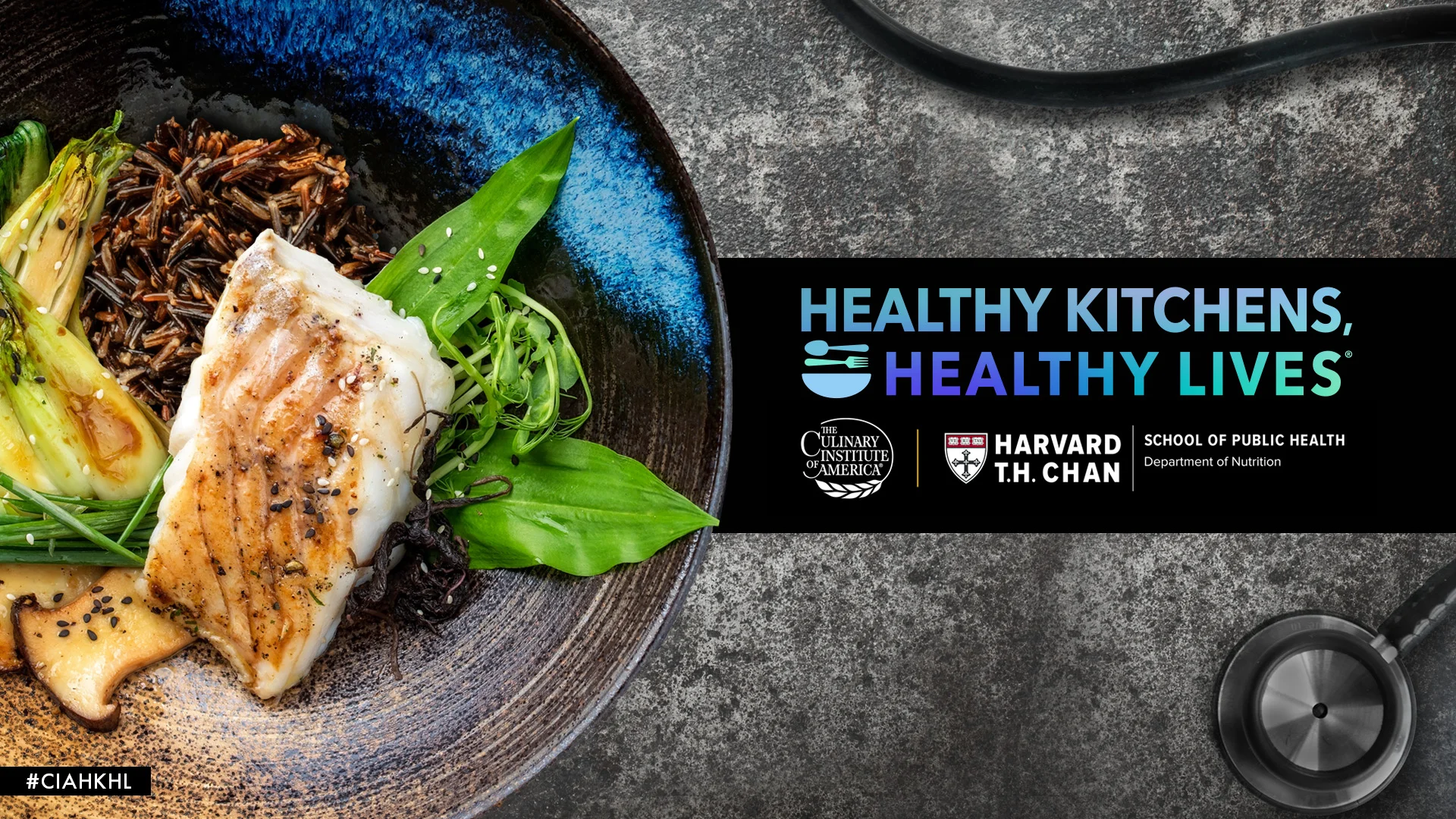During the past few decades, the link between diet and health has become clearer than ever. Chronic illnesses, including obesity and diabetes, are creating extraordinary public health challenges nationally and globally. And increasingly, health care professionals—and most recently, the US government—are becoming more vocal about the need for improved access to affordable, healthy food, education on preparing healthful meals, and a lifestyle medicine approach that sets patients up for success and results in improved outcomes.
But how many doctors, nurses, and other healthcare professionals are truly knowledgeable about the latest scientific evidence on nutrition? How many know how best to successfully engage their patients to improve their food choices and lifestyles? How many can serve as role models, coaches, and teachers to shift the way people think about purchasing, preparing, and enjoying healthy and delicious foods?
Healthy Kitchens, Healthy Lives—an annual gathering of physicians, registered dietitian nutritionists, nurses, and other healthcare professionals; hospital, insurance, and other healthcare executives, and healthcare foodservice directors and executive chefs—seeks to empower healthcare professionals to effect better patient outcomes by arming them with the latest nutrition science; practical, fundamental culinary skills; and hundreds of recipes. Held annually in February at The Culinary Institute of America at Copia in Napa, CA, this conference combines learning, unparalleled networking and sharing of best practices, and hands-on culinary education for an experience that is both personally and professionally rewarding.
Learning Objectives
Through plenary lectures, culinary demonstrations, hands-on kitchen sessions, interactive workshops, meals, and tastings, attendees will achieve the following learning objectives:
Summarize the latest scientific evidence and trends regarding the relationships between food, nutrition, lifestyle behaviors, personal and planetary health outcomes, and health equity.
Identify practical approaches for clinicians to assess patients’ nutritional and lifestyle habits and provide meaningful guidance to positively influence behavior change and, ultimately, health status.
Apply information acquired during didactic and hands-on kitchen session(s) to prepare a variety of technique-driven, recipe-inspired dishes that can be customized at home for providers, their patients, and families.
Discover globally inspired, plant-forward foods, recipes, and culinary techniques to facilitate enhanced food and culinary literacy, cultural competency, and home cooking among providers and their patients.
Describe ways in which interprofessional and collaborative healthcare teams (which may include physicians, dietitians, chefs, health coaches, and others) can be created and nurtured across healthcare settings to improve health outcomes for patients.
Identify challenges and opportunities to start and/or build upon existing food and cooking-based health interventions within one’s own organization and/or community.
The relationship between The Culinary Institute of America and Harvard T.H. Chan School of Public Health—Department of Nutrition began in 2004 with the premier of Worlds of Healthy Flavors, an invitational leadership retreat for volume foodservice professionals. This three-day retreat put faculty from the Harvard Chan School in front of an audience of executive chefs and food service administrators to update them on the state-of-the-art of nutrition science. It was at this event that the idea of creating a continuing medical education conference that would teach physicians, registered dietitians, and other healthcare professionals the relationship between good nutrition and expert cooking was born. Healthy Kitchens, Healthy Lives made its formal debut in 2007.
History of the Conference
The Department of Nutrition at Harvard T.H. Chan School of Public Health was the first of its kind in any medical or health center worldwide. Since its founding in 1942, the department has made significant contributions toward an understanding of biological mechanisms underlying the effects of nutrition metabolism and health. These include the roles of diet and lifestyle—and their interactions with genetic factors—in the cause and prevention of obesity, diabetes, cardiovascular disease, cancer, neurodegenerative diseases, reproductive disorders, and other health conditions. The department has worked to more effectively translate these discoveries into interventions benefiting communities and vulnerable populations; and has made a major impact on public health policies around the world.
About Harvard T.H. Chan School of Public Health—Department of Nutrition
Founded in 1946, The Culinary Institute of America (CIA) is the world’s premier culinary college. Dedicated to developing leaders in foodservice and hospitality, the independent, not-for-profit CIA offers master’s, bachelor’s, and associate degrees with majors in culinary arts, baking & pastry arts, food business management, hospitality management, culinary science, and applied food studies. The college also offers executive education, certificate programs, and courses for professionals and enthusiasts. Its conferences, leadership initiatives, and consulting services have made the CIA the think tank of the food industry and its worldwide network of more than 50,000 alumni includes innovators in every area of the food world. The CIA has locations in New York, California, Texas, and Singapore. For more information, visit www.ciachef.edu


